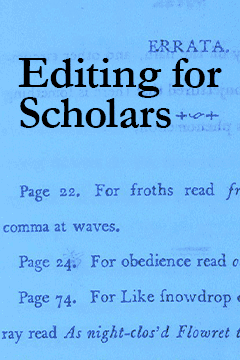Superficial Liberalism? A Response to Yascha Mounk
Superficial Liberalism? A Response to Yascha Mounk
Kristen Loveland: Superficial Liberalism? A Response to Yascha Mounk
Yascha Mounk and I recently addressed a German regional court?s decision to criminalize the circumcision of boys. I sought to understand the ruling partly as the product of the special way that postwar Germany, in attempting to learn from the Holocaust, has conceptualized human dignity and insisted on the integrity of the human body. Mounk saw the ruling as the latest manifestation of Germany?s rejection of multiculturalism.
Mounk?s piece is especially valuable for showing how the language of liberalism can place multiculturalism at risk. Yet even as Mounk notes that the Cologne court spoke in ?impeccably liberal language,? he seems to doubt whether the court ruling?and the troubling phenomenon of ?liberal Islamophobia? in which he situates it?is liberal at all. It is ?baffling,? he writes, that the court could have invoked liberal principles in order to ban the bris and khitan. He labels the court?s reasoning as only ?superficially? or ?supposedly? liberal. Because real liberalism doesn?t single out minority groups for ill treatment, the ruling must have spoken liberalism?s words while abandoning its creed.
If the ruling seems baffling, it may be because Mounk has not fully understood the court?s reasoning and wrongly assumes that liberalism cannot disadvantage minorities. In its ruling, the court sought to protect an individual?s body from permanent, medically unnecessary, and non-consensual modification. Its stated goal was to preserve the individual?s right to freely determine his future. ?The constitutional rights of parents?are for their part limited by the constitutional right of children to physical integrity and self-determination,? opined the court. The judgment?s reasoning?and not just its language?is nothing if not liberal. In protecting the body, it seeks to safeguard the individual in its most integral and dissociated form. Opponents of the ruling, like me and Mounk, accept a greater role for religious communities in permanently altering the body.
Mounk looks suspiciously upon the court?s stated rationale because he thinks it applies its principles with blatant selectivity against Muslims and Jews. But he ignores the specificity of the notion of physical integrity that underpins the court?s ruling. He assumes it is obviously hypocritical for the court to ban circumcision but not Christian baptism. The latter, however, leaves no ?enduring and irreparable? mark on the body as the court argued that circumcision does. Nor is it as incoherent as Mounk claims to forbid circumcision while permitting childhood ear piercing. As anyone who has pierced their ears will tell you, the holes readily close up.
If anti-Islamic or anti-Semitic sentiments played a role in the decision, they did so within a liberal paradigm. So simply reaffirming liberalism settles nothing. Instead we should understand how genuinely liberal principles can accommodate hostility toward multiculturalism. Any adequate criticism of the circumcision ban would affirm the importance of age-old Muslim and Jewish practices and address the questions the court raised: how should we substantively define self-determination, what role does physical integrity play in ensuring individual freedom, and how much power should the community have in shaping an individual?s body?
Writing passionately about the selective application of superficially liberal principles, Mounk recognizes that, in any particular society, the outlines provided by liberal principles are filled in by substantive social and political commitments. By the same token, he should not advance his own commitments as the true liberalism. Ross Douthat?s most recent New York Times column displayed a similar logic. Yoking together a right to religious circumcision with a right to deny contraceptive coverage to employees, Douthat denounced any who disagreed with him as opponents of religious freedom?as opposed to believers in religious freedom who think certain religious practices infringe on the rights of others.
It is easy to say that one side actually represents religious freedom while the other does not, or that one side is liberal but the other only supposedly so. But to insist that it is wholly at odds with our political framework to draw the line between religious and individual liberty at a different point from one?s own demarcation closes the conversation. ?Descriptions are seldom neutral,? wrote Uday Mehta in his classic essay on liberal strategies of exclusion. If there is to be a substantive critique of the Cologne court?s decision and its relationship to multiculturalism, it must address what the content of liberalism should be in a given time and place. To protect multiculturalism, we must recognize the limitations of liberalism so that we can look beyond it for answers. Casting the court?s judgment as illiberal, and proposing liberalism as the solution, obscures what is at stake.




